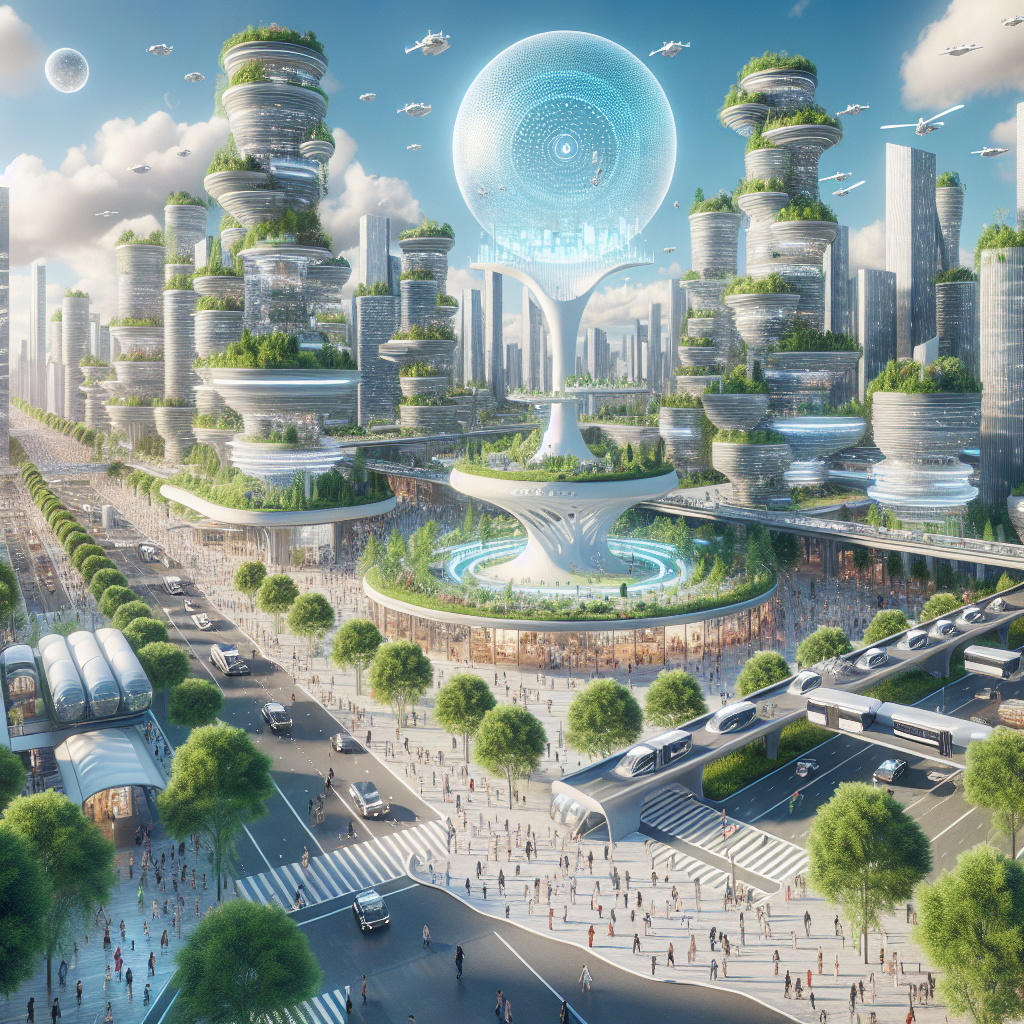The Potential of AI in Designing Resilient Cities
In recent years, the concept of designing resilient cities has gained traction as urban areas face increasing challenges from climate change, natural disasters, and population growth. Resilient cities are those that can withstand and recover from shocks and stresses, such as extreme weather events, economic downturns, and social unrest. In this context, artificial intelligence (AI) has emerged as a powerful tool for designing and managing resilient cities.
AI has the potential to revolutionize the way cities are planned, built, and operated. By analyzing vast amounts of data, AI can help urban planners and designers make informed decisions that improve the resilience of cities. From predicting the impact of climate change on urban infrastructure to optimizing traffic flow during emergencies, AI can enable cities to adapt and thrive in the face of uncertainty.
One of the key areas where AI can make a significant impact is in disaster risk reduction. By analyzing historical data on natural disasters and simulating various scenarios, AI can help cities identify vulnerable areas and develop strategies to mitigate risks. For example, AI-powered models can predict the likelihood and impact of floods, earthquakes, and other disasters, allowing city officials to prioritize investments in infrastructure and emergency response systems.
AI can also play a crucial role in optimizing urban infrastructure. By analyzing real-time data from sensors and cameras, AI can improve the efficiency of public transportation, energy distribution, and waste management systems. For instance, AI algorithms can adjust traffic signals in real-time to reduce congestion and emissions, or optimize the routing of emergency vehicles during disasters.
Furthermore, AI can enhance the resilience of cities by fostering community engagement and participation. By analyzing social media data and other sources of information, AI can help city officials understand the needs and concerns of residents and involve them in decision-making processes. This can lead to more inclusive and responsive urban planning, which is essential for building resilient communities.
In addition to improving the resilience of cities, AI can also contribute to their sustainability. By optimizing energy consumption, reducing waste, and promoting green technologies, AI can help cities reduce their environmental footprint and combat climate change. For example, AI-powered energy management systems can optimize the use of renewable energy sources and reduce greenhouse gas emissions.
Despite its potential benefits, the use of AI in designing resilient cities also raises ethical and social concerns. For example, there are concerns about data privacy, algorithm bias, and the potential for AI to exacerbate existing inequalities. It is important for city officials, planners, and designers to address these issues and ensure that AI is used in a responsible and transparent manner.
Overall, AI has the potential to revolutionize the way cities are designed and managed, making them more resilient, sustainable, and inclusive. By harnessing the power of AI, cities can better prepare for and respond to the challenges of the 21st century, ultimately improving the quality of life for residents and ensuring the long-term viability of urban areas.
Frequently Asked Questions (FAQs)
Q: How can AI help cities become more resilient to natural disasters?
A: AI can analyze historical data on natural disasters, predict future risks, and develop strategies to mitigate them. By optimizing infrastructure and emergency response systems, AI can help cities better prepare for and respond to disasters.
Q: What are some examples of AI applications in urban planning?
A: AI can be used to optimize public transportation systems, manage energy consumption, and improve waste management. By analyzing data from sensors and cameras, AI can help cities make informed decisions that improve efficiency and sustainability.
Q: How can AI promote community engagement in urban planning?
A: By analyzing social media data and other sources of information, AI can help city officials understand the needs and concerns of residents. This can lead to more inclusive and responsive urban planning processes.
Q: What are some ethical concerns associated with the use of AI in designing resilient cities?
A: There are concerns about data privacy, algorithm bias, and the potential for AI to exacerbate existing inequalities. It is important for city officials and planners to address these issues and ensure that AI is used in a responsible and transparent manner.

